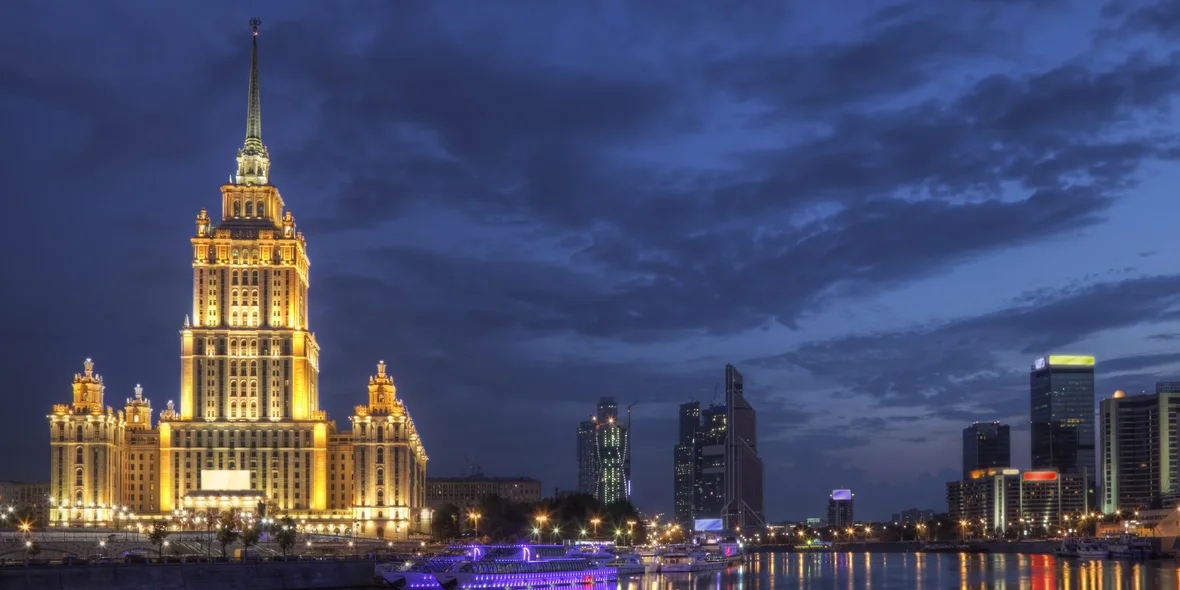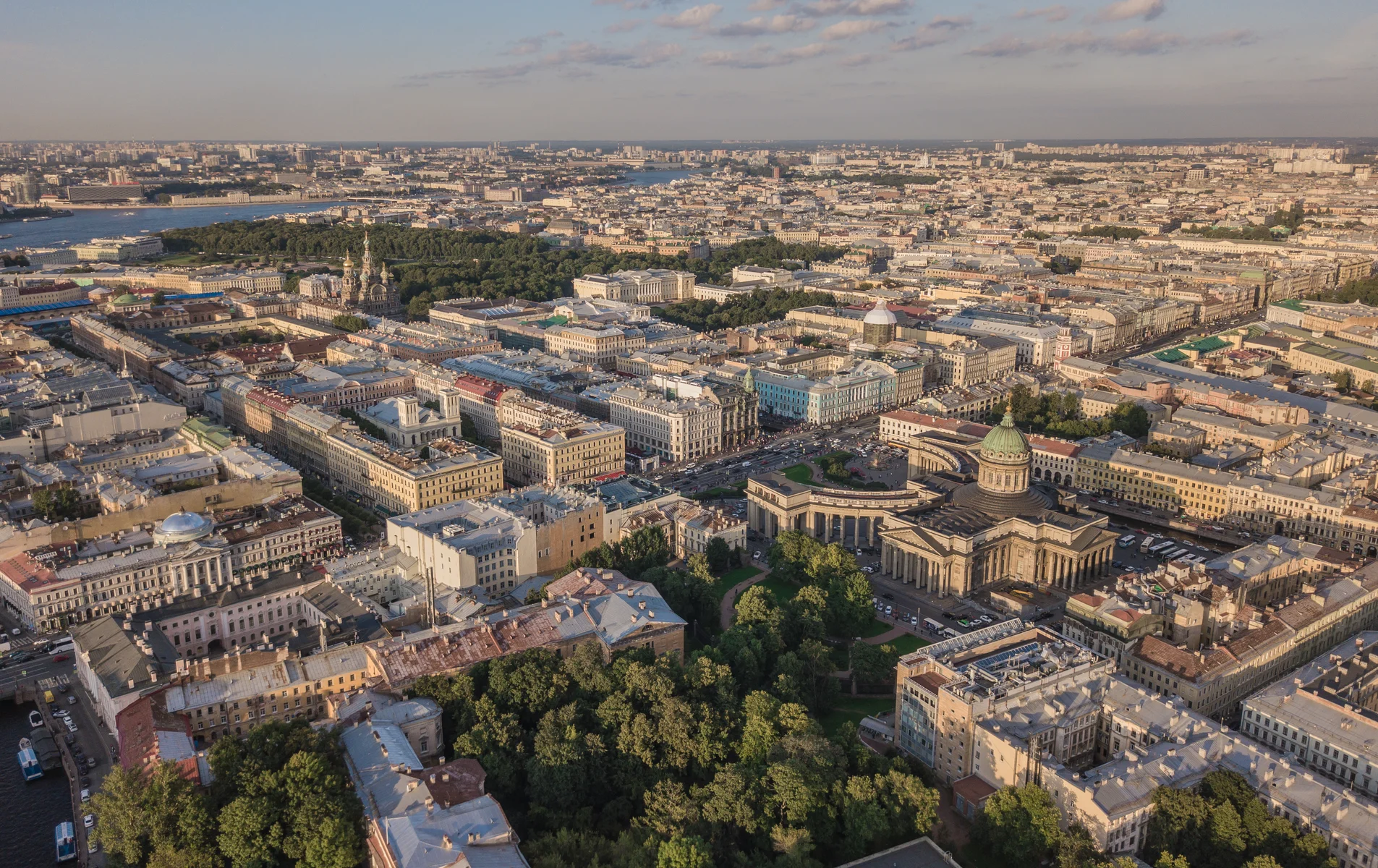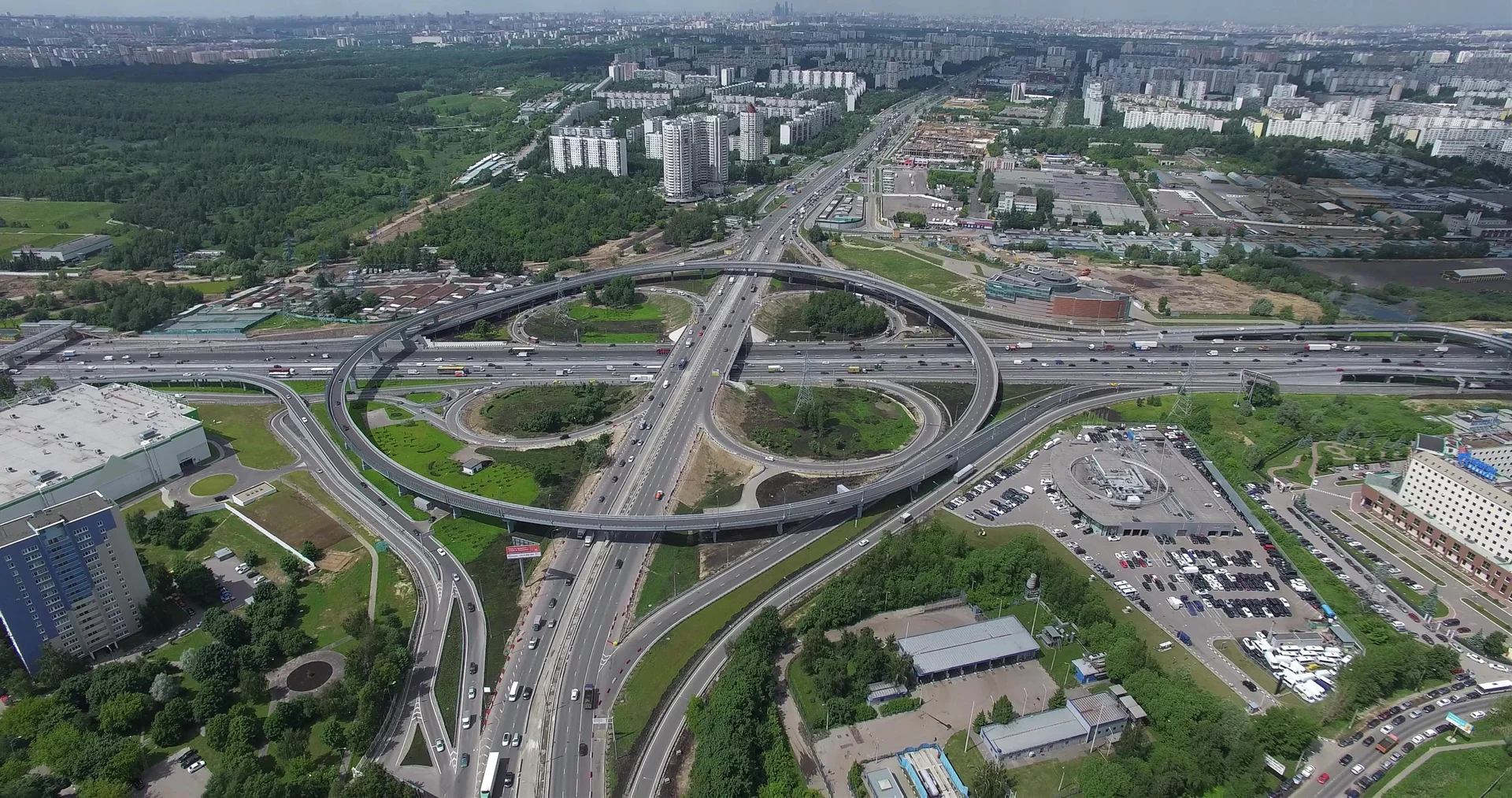
How a Foreigner Can Buy Real Estate in Russia. The Complete Guide for International Buyers
In recent years, interest in Russian real estate from foreign buyers has grown significantly. This demand is noticeable not only among citizens of CIS countries but also among residents of Europe, Asia, and the Middle East.
The local real estate market caters to this demand by offering a wide range of housing options in Russia: from affordable apartments in regional areas to luxury apartments in Moscow and St. Petersburg, from cozy countryside homes to commercial properties. However, despite the market’s appeal, non-residents must pay close attention to critical nuances. Legal aspects, taxes, and transaction formalities all require careful consideration and a knowledgeable approach.
In our article, we will explore the process of buying property in Russia as a foreigner, the laws regulating it, and the potential pitfalls involved.
Types of Property Available for Foreigners in Russia
Non-residents are legally allowed to purchase real estate in Russia on the same terms as Russian citizens, including apartments, houses, and commercial properties. However, foreign citizens are prohibited from acquiring land in the following cases:
- Border areas. The law prohibits foreigners from owning land near Russia’s state borders.
- Agricultural land. Foreigners are not allowed to acquire agricultural land plots.
- Specially protected areas. Purchasing land in reserves, national parks, and other protected zones is prohibited.
Since March 2022, additional measures have been introduced for property purchases by citizens of countries classified by Russian authorities as "unfriendly." As of December 2024, these include:
- European Union countries (all 27). Austria, Belgium, Bulgaria, Germany, Greece, Denmark, Ireland, Spain, Italy, Cyprus, Latvia, Lithuania, Luxembourg, Malta, Netherlands, Poland, Portugal, Romania, Slovenia, Finland, France, Croatia, Czech Republic, Sweden, and Estonia.
- Other countries. Australia, Albania, Andorra, Bahamas, United Kingdom (including crown dependencies and overseas territories), Iceland, Canada, Liechtenstein, Micronesia, Monaco, New Zealand, Norway, South Korea, San Marino, North Macedonia, Singapore, USA, Taiwan, Ukraine, Montenegro, Switzerland, and Japan.
Specific requirements for property purchases by foreigners from unfriendly countries:
- Obtaining special permission. Transactions involving individuals from unfriendly states require prior approval from the Government Commission for Control over Foreign Investments.
- Payments via special accounts. Financial operations for such transactions must be conducted through special "C" accounts opened in Russian banks. These accounts ensure control over fund movements and mitigate potential risks.
- Restrictions on certain types of real estate. Foreign citizens from unfriendly countries are prohibited from acquiring:
- Land plots in border zones.
- Agricultural lands.
- Properties in specially protected areas.
Property Prices in Russia
In 2024, prices for housing in Russia increased across cities due to growing demand, inflation, and rising construction material costs. Despite high prices, interest in real estate in these regions remains consistently strong.
Average house price in Russia per square meter:
|
City |
Average price per m² (apartments) RUB/USD |
Average price per m² (houses) RUB/USD |
|
Moscow |
375,530 / 3738 |
200,000 / 1990 |
|
St. Petersburg |
201,433 /2005 |
150,000 / 1493 |
|
Yekaterinburg |
150,000 /1493 |
120,000 / 1195 |
|
Novosibirsk |
130,000 /1294 |
110,000 / 1095 |
|
Kazan |
140,000 /1394 |
115,000 / 1145 |
|
Nizhny Novgorod |
120,000 /1195 |
100,000 / 995 |
|
Chelyabinsk |
94,236 / 938 |
80,000 / 796 |
|
Samara |
110,000 / 1095 |
95,000 / 945 |
|
Rostov-on-Don |
139,000 / 1385 |
115,000 / 1145 |
|
Perm |
141,000 / 1405 |
120,000 / 1195 |
Real estate prices in Russia are traditionally higher in Moscow and St. Petersburg, as these are the largest metropolitan areas with developed infrastructure and high demand for property.
Yekaterinburg, Kazan, and Rostov-on-Don are showing significant price growth, reflecting their economic development and attractiveness to investors. Chelyabinsk and Nizhny Novgorod offer more affordable housing; however, prices in these cities are also gradually increasing.
Property Taxes in Russia
Real estate taxation in Russia is governed by the Russian Tax Code and applies to both residents and non-residents. The primary tax associated with real estate is the Property Tax for Individuals in Russia. This is an annual mandatory payment for property owners and applies to assets such as apartments, houses, rooms, garages, and other structures.
Taxes in Russia applies to the following types of property:
- All types of houses and apartments in Russia.
- Rooms.
- Garages and parking spaces.
- Unfinished construction projects.
- Other buildings, structures, and premises.
Individuals who own these types of real estate are liable to pay the property tax in Russia. Whether the property is occupied or vacant, the tax must be paid. If the property owner is a minor, their parents or guardians are responsible for the tax payment.
The tax rate depends on the type and value of the property:
- 0.1% for residential houses, apartments, rooms, garages, parking spaces, and auxiliary structures with an area of up to 50 square meters.
- 0.5% for other types of real estate.
- 2% for properties with a cadastral value exceeding 300 million rubles, as well as certain types of commercial real estate.
The tax must be paid no later than December 1 of the year following the reporting year. In 2024, the deadline has been extended to December 2, as December 1 falls on a weekend.
Personal Income Tax (PIT)
Personal Income Tax (PIT) is a mandatory tax levied on individual income, both monetary and in-kind. Residents pay PIT on income earned both in Russia and abroad, while non-residents are taxed only on income earned in Russia. The primary tax associated with selling property in Russia is PIT.
PIT rates:
- 13%: for residents on most types of income (salaries, bonuses, freelance work). Also applies to income from the sale of property owned for longer than the minimum holding period (usually 3 years).
- 15%: applied to resident income exceeding 5 million rubles annually (on the amount exceeding this threshold).
- 30%: for non-residents.
- 35%: for lottery winnings and interest on bank deposits exceeding a certain limit.
PIT applies to the following types of income:
- Salaries.
- Fees and bonuses.
- Rental income from real estate.
- Income from the sale of property.
- Benefits from reduced interest rates (e.g., interest-free loans provided by employers).
- Investment income (dividends, interest).
Exemptions from PIT:
- Government benefits:
- Maternity and childbirth allowances.
- Lump-sum payments upon the birth of a child.
- Social payments:
- Maternity capital.
- Compensation for medical treatment and food.
- Income from Property Sales (if held for the required period):
- 3 years for personal property.
- 5 years for investment real estate (except in cases of inheritance, gifts to close relatives, etc.).
- Gifts from close relatives.
For employees, the tax is withheld and paid by the employer from their salary. For self-employed individuals, sole proprietors, and individuals with additional income (e.g., rental income), the responsibility to file a tax return and pay the tax rests with the taxpayer.
- The tax return must be filed by April 30.
- The tax must be paid by July 15.
Taxes for Foreigners in Russia
Taxes for non-residents of Russia differ slightly from those for residents, primarily regarding Personal Income Tax (PIT). The PIT rate for non-residents is 30% (compared to 13% for residents) and applies to income earned from Russian sources, including income from the sale of real estate.
It is important to note that a non-resident is defined as an individual who spends less than 183 days in Russia within a 12-month period.
There are no additional taxes for foreigners purchasing real estate in Russia. Buyers, regardless of citizenship, pay a state fee for property registration, which amounts to approximately 2000 rubles (around $20) for individuals.
Tax deadlines
- Land and property taxes are paid annually by December 1 of the year following the tax period. For instance, taxes for 2023 must be paid by December 1, 2024.
- PIT on real estate sales must be paid no later than July 15 of the year following the year in which the income was received.
Inheritance Tax
There is no inheritance tax in Russia. However, when inheriting real estate, a state fee must be paid to obtain the certificate of inheritance rights. The fee is 0.3% of the inherited property’s value for close relatives (capped at 100,000 rubles). For other heirs, the rate increases to 0.6% of the property’s value (capped at 1,000,000 rubles).
The sale of inherited property is subject to PIT at standard rates: 13% for residents and 30% for non-residents.
Land Tax
The land tax is a mandatory local tax paid by all landowners, including individuals, legal entities, foreign citizens, and non-residents. This tax is intended to support municipal budgets and is regulated by Chapter 31 of the Russian Tax Code.
Who must pay:
- Individuals: citizens owning land plots as private property.
- Legal entities: companies owning or using land.
- Foreign citizens and non-residents: individuals owning land plots in Russia.
Land tax rates:
- Up to 0.3% of the cadastral value:
- For land designated for residential construction.
- For agricultural land.
- For plots used for personal household farming.
- Up to 1.5% of the cadastral value:
- For land designated for commercial purposes.
- For other categories of land not specified above.

Mortgage and Installments
The real estate markets in Russia and Europe differ significantly, particularly in terms of mortgage lending for property purchases. Mortgage loans in these regions reflect the economic conditions, government support programs, and banking practices specific to each. In 2024, the Central Bank of Russia’s key interest rate reached 21%, leading to an increase in the average Russian mortgage rate to 28% annually.
To reduce the financial burden on borrowers, government programs with subsidized rates are in place: family mortgages at 6%, preferential mortgages for new housing developments in Russia at 8%, and IT mortgages at 5%.
Down payment requirements
The standard down payment for a mortgage in Russia is typically 20%. Under subsidized programs, this amount has been increased from 20% to 30% of the property’s value. For non-residents, the down payment usually ranges from 40% to 50% of the property value.
Loan terms
The maximum mortgage term in Russia is generally 30 years. In Europe, loan terms vary depending on the country. For example, in Portugal, mortgages can extend up to 35 years, in Finland up to 35 years, and in Switzerland, there are lifetime mortgage programs that can be inherited.
Government support
There are large-scale government support programs aimed at stimulating housing demand and supporting the construction sector. However, despite these measures, mortgage rates in Russia remain higher than in most European countries. In Europe, government support for mortgages is less common and is usually limited to social programs targeting specific groups of citizens.
Accessibility for foreign nationals
While mortgages are available to foreign nationals in Russia, they are primarily aimed at Russian citizens. Foreign nationals, even those with residence permits, can only access subsidized programs in exceptional cases.
Current trends and forecasts
In 2025, a 30–40% decline in mortgage lending volumes is expected in Russia. This is attributed to rising interest rates and stricter mortgage conditions in the country.
Borrower Requirements
As previously mentioned, mortgages are available to non-residents in Russia, but they come with specific conditions and restrictions. The primary requirement is legal residence in Russia with a valid status (active visa, migration card, temporary residence permit (TRP), or permanent residence permit (PRP)).
Other requirements include having a stable official income and employment in Russia. Additionally, the borrower’s age must be between 21 and 65 years.
Loan terms:
- Interest Rates. For foreign citizens, interest rates are generally higher than for Russian citizens, ranging from 5.8% to 33.75% annually.
- Down Payment. The required down payment is typically 20% to 30% of the property’s cost. However, for non-residents, it can reach up to 50%, depending on the bank’s decision.
- Loan Term. The maximum mortgage term can be up to 30 years, but it may be shorter for foreign citizens.
Required documents:
- Passport with a Notarized Translation into Russian.
- Documents Confirming Legal Residence in Russia. Such as a visa, migration card, TRP, or PRP.
- Proof of Income. For example, a 2-NDFL certificate or an equivalent document.
- Employment Contract or Other Documents Confirming Employment.
Installment Plans
A mortgage is not the only way for foreigners to acquire property in Russia. Another option is an installment plan, which allows for phased payments of the property’s cost without involving a bank loan. Installment plans are most commonly offered by developers to buyers purchasing property in the primary market.
Terms of installment plans:
- Duration. Installments are provided for a limited period, often until the construction is completed or the property is put into operation. The duration can range from several months to 1–2 years.
- Down payment. In some cases, installment plans may be interest-free, but this depends on the developer’s terms. For example, some developers in St. Petersburg offer installment plans with a down payment starting at 30%, followed by payments spread over 12 months. Typically, the down payment ranges from 10% to 80% of the property’s value, with a standard rate of around 40–50%.
- Interest-free installments. With interest-free installments, the buyer pays only the cost of the property without additional interest. However, the duration of such plans is usually shorter than that of a mortgage, and they are often offered during the construction phase.
Real Estate Insurance
Real estate insurance is not mandatory by law when purchasing property in Russia, but in some cases, it becomes necessary. The most common scenario is mortgage financing: banks typically require property insurance, as the property serves as collateral. Furthermore, they often insist on additional insurance, such as life and disability insurance for the borrower.
Another situation where property insurance may be required is shared-equity construction. When purchasing an apartment from a developer during the construction phase, the developer may arrange insurance to cover its own risks. However, this typically concerns the developer rather than the buyer. Once the property is completed and operational, any insurance obligations transfer to the owner under the terms of the mortgage agreement, if applicable.
Insurance is not mandatory if the property is purchased with cash and is not subject to a mortgage or collateral agreement. However, property insurance can be beneficial for protection against:
- Natural disasters (floods, fires);
- Accidents (water leaks, gas explosions);
- Third-party actions (theft, vandalism).
For foreign citizens, real estate insurance in Russia is also not mandatory if the property is purchased without a mortgage. Foreigners can insure their property through Russian insurance companies. The process may be more complicated if the foreigner does not have a residence permit, but overall, the procedure is identical to that for Russian citizens.
Our catalog features properties from across Russia, from major cities to charming resort areas. We work exclusively with trusted developers and real estate agencies, offering a diverse range of property types and options.
Steps for Purchasing a Property in Russia
Buying property in Russia has its distinct characteristics, the most notable of which is less cumbersome bureaucracy compared to EU countries. The process of registering ownership in Russia is typically faster and more affordable. However, if documents are incorrectly prepared, some stages of the process may need to be repeated.
Obtaining Permission to Buy Real Estate
Foreign citizens have the right to purchase property in Russia. However, additional requirements apply to citizens of "unfriendly" countries. According to Presidential Decree No. 81, dated March 1, 2022, such individuals must obtain special permission to purchase real estate.
Who Needs to Obtain Permission:
- Citizens of foreign countries designated as "unfriendly" by the Russian authorities.
- Residents of these countries who have lived in their territory for more than 183 days in a year.
- Citizens of other countries if they are conducting transactions with the aforementioned individuals.
Procedure for Obtaining Permission:
- Preparation of documents:
- A passport of the foreign citizen, with a notarized translation into Russian.
- A document confirming the legal stay in Russia (visa, migration card, temporary residence permit, or residence permit).
- Notarized spousal consent for the property purchase, if the buyer is married.
- Submission of application. The applicant must contact the Federal Service for State Registration, Cadastre, and Cartography (Rosreestr) or the local Rosreestr office. A statement of intent to purchase real estate should be submitted along with the prepared documents.
- Review of the application. Rosreestr reviews the submitted documents and forwards a request to the Government Commission for Control over Foreign Investments in Russia. The commission evaluates the application and decides whether to grant or deny permission to purchase real estate.
- Receiving permission. If approved, the applicant is issued an official permit to purchase property in Russia.
Research and Select Property
The search process can be conducted independently or through an agency. Additionally, you can visit new developments and developers’ offices to inquire about available properties.
When searching independently, it is crucial to exercise caution to avoid fraud. Online platforms often include listings from dishonest realtors or unscrupulous sellers. What may seem like a short-term financial benefit can lead to significant consequences.
Working with an agency can simplify the search process, as professionals will select properties that meet your requirements. Agencies often assist in verifying the legal integrity of the property. However, agencies charge a substantial percentage of the property’s value as a commission for their services. Some intermediaries offer a fixed fee for their assistance.
Legal verification of real estate:
- Verification of title documents. Request documents from the owner that confirm ownership of the property (e.g., purchase agreements, inheritance certificates, or deeds of gift). Ensure that the seller’s ownership is registered in the Unified State Register of Real Estate (EGRN).
- Review of property history. Examine the history of transactions involving the property to eliminate the risk of disputed ownership. Verify that the property is not involved in legal proceedings or disputes.
- Check for encumbrances. Investigate whether the property has encumbrances, such as liens, mortgages, arrests, or usage restrictions. Order an extract from the EGRN to obtain up-to-date information.
- Verification of the seller. Ensure that the seller is legally competent and not under guardianship. If the seller is married, a notarized consent from their spouse for the sale is required.
- Verification of technical specifications. Compare the actual characteristics of the property (e.g., area, floor, condition) with the details in the documents. Ensure there are no unauthorized modifications or renovations that could be deemed illegal.
To reduce risks, always verify documents through the official Rosreestr website and avoid transferring advance payments before signing the contract. The best solution is to engage a certified and accredited lawyer to review the property, especially if you are uncertain about handling the process yourself.
What Documents are Needed
Purchasing real estate in Russia requires the submission of a complete set of documents, the most important of which is identification. For Russian citizens, this is the internal passport. For foreign citizens, it is their national passport with a notarized translation into Russian.
Other required documents:
- Taxpayer identification number (TIN). Although not mandatory for the transaction, a TIN may be required if applying for a mortgage.
- Notarized spousal consent. If the buyer is married, a notarized consent from their spouse is required, regardless of citizenship.
- Funds for payment. A bank statement confirming the availability of funds or another form of proof of solvency.
- Mortgage documents (if applicable). A signed agreement with the bank, a payment schedule, and proof of the initial deposit.
Additional requirements for foreign citizens and non-residents:
- Document confirming legal stay in Russia. A visa, migration card, temporary residence permit (TRP), or residence permit.
- Russian TIN. Foreign citizens must obtain a Russian TIN to pay taxes, such as property taxes.
- Permission to purchase real estate (if applicable). Citizens of so-called "unfriendly countries" must obtain approval from the Government Commission.
- Proof of source of funds (if required). Banks and notaries may request confirmation of the legal origin of funds.
- Tax payment documents. Non-residents must confirm that taxes have been paid if the funds for the purchase were earned in Russia.
Documents to request from the seller:
- Title documents. Contracts of sale, donation, exchange, or inheritance that confirm ownership.
- Extract from the unified state register of real estate (EGRN). This document confirms ownership rights and the absence of encumbrances.
- Technical passport of the property. Confirms the characteristics of the real estate.
- Cadastral passport (if applicable). Contains information about the boundaries of the plot, in cases where a land plot is being purchased.

Property Registration Process
The process of concluding a purchase and sale transaction begins with its preparation. The contract can be drafted by the parties themselves or with the assistance of a lawyer. It must include complete details of the seller and the buyer (full name, passport details, addresses), a detailed description of the real estate (address, cadastral number, area, intended use), payment terms (amount, method, and deadlines for the transfer of funds), and guarantees from the seller that the property is free of encumbrances, debts, or third-party claims.
The contract is signed by both parties. If one of the parties is married, notarized consent from the spouse is required. In some cases, the contract must be notarized (for example, when selling a share of a property or if the buyer is a minor). The notary verifies the legality of the transaction and the signed documents.
Money transfer can be done via an escrow account or a bank safety deposit box. Importantly, the seller receives the funds only after the buyer’s ownership is registered. Direct money transfers are possible but highly risky and should only be considered if there is mutual trust between the parties.
After signing the contract, the parties submit the documents to the Federal Service for State Registration, Cadastre, and Cartography (Rosreestr) or through a Multifunctional Center (MFC) to register the transfer of ownership. The registration process typically takes up to seven business days. The required documents include:
- The buyer’s passport.
- The purchase and sale agreement (in triplicate).
- A receipt confirming payment of the state duty.
- Property documents (title documents, an extract from the Unified State Register of Real Estate (EGRN), and a technical passport, if required).
After registration, the acceptance certificate is signed, confirming that the buyer has received the property in the agreed condition. Without this document, the purchase or sale of real estate in Russia is considered incomplete.
Key aspects to consider:
- Legal integrity of the property. Ensure that there are no encumbrances in the EGRN (e.g., mortgages, arrests, or leases). Verify that the seller is the legitimate owner of the property and that the property is not involved in legal disputes or encumbrances.
- Accuracy of the contract. Ensure that all terms of the transaction are clearly specified, including payment procedures, deadlines, and the parties’ responsibilities in case of breaches. Avoid inconsistencies in the property description or terms, especially when a copy of the contract is prepared in a foreign language.
- Compliance with the law. The sale of an apartment to a foreign citizen in Russia is straightforward unless the property is located in strategic or border areas. Check whether your country of origin is classified as "unfriendly" and, if so, obtain the necessary permissions to purchase real estate.
- Payment of the state duty. The state duty amounts to 2000 rubles ($20) for individuals. Proof of payment must be attached to the ownership registration application.
Since 2022, Rosreestr has introduced an electronic registration system. Buyers and sellers can complete transactions remotely through accredited partners, such as banks or developers.
Buying Real Estate for Cryptocurrency
According to Federal Law No. 259-FZ "On Digital Financial Assets and Digital Currency" (FZ-259), the use of cryptocurrency as a means of payment is prohibited in Russia. The only legal means of payment in the Russian Federation is the Russian ruble. This means that purchasing real estate using cryptocurrency in Russia is not allowed.
Despite the prohibition of direct payments, there are alternative approaches that can be utilized without violating the law:
- Conversion of cryptocurrency into rubles. The buyer sells their cryptocurrency on an exchange or through a conversion service, receiving rubles, which are then used to purchase property in Russia. It is essential to account for taxation when selling cryptocurrency and to declare the income received.
- Bilateral agreements. Parties may enter into two separate agreements: one for the sale of cryptocurrency and another for the purchase of real estate. However, such an arrangement requires meticulous legal preparation and may involve certain risks.
Attempts to bypass the legislation and conduct direct real estate transactions using cryptocurrency can result in the refusal of the Federal Service for State Registration, Cadastre, and Cartography (Rosreestr) to register the transfer of property rights. Such violations will be documented and may lead to administrative fines.
Author
I write informative articles about real estate, investments, job opportunities, taxes, etc.



















